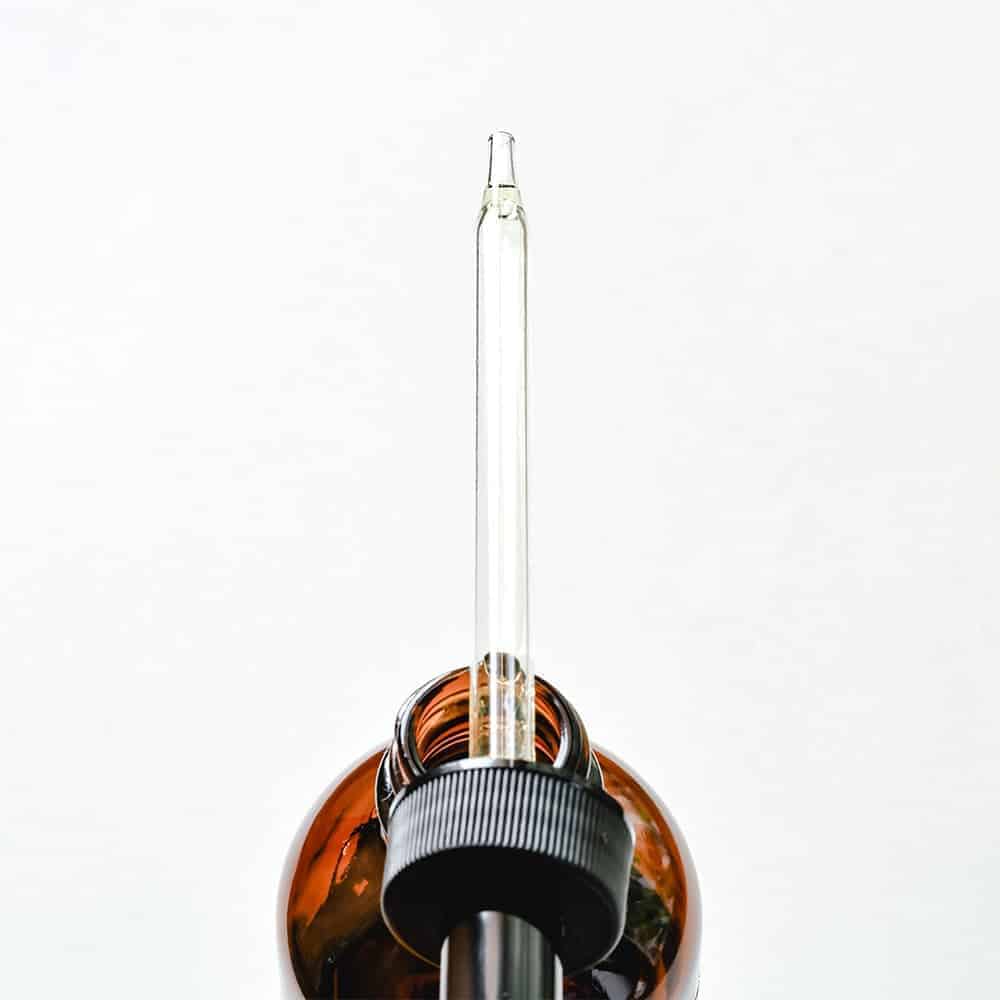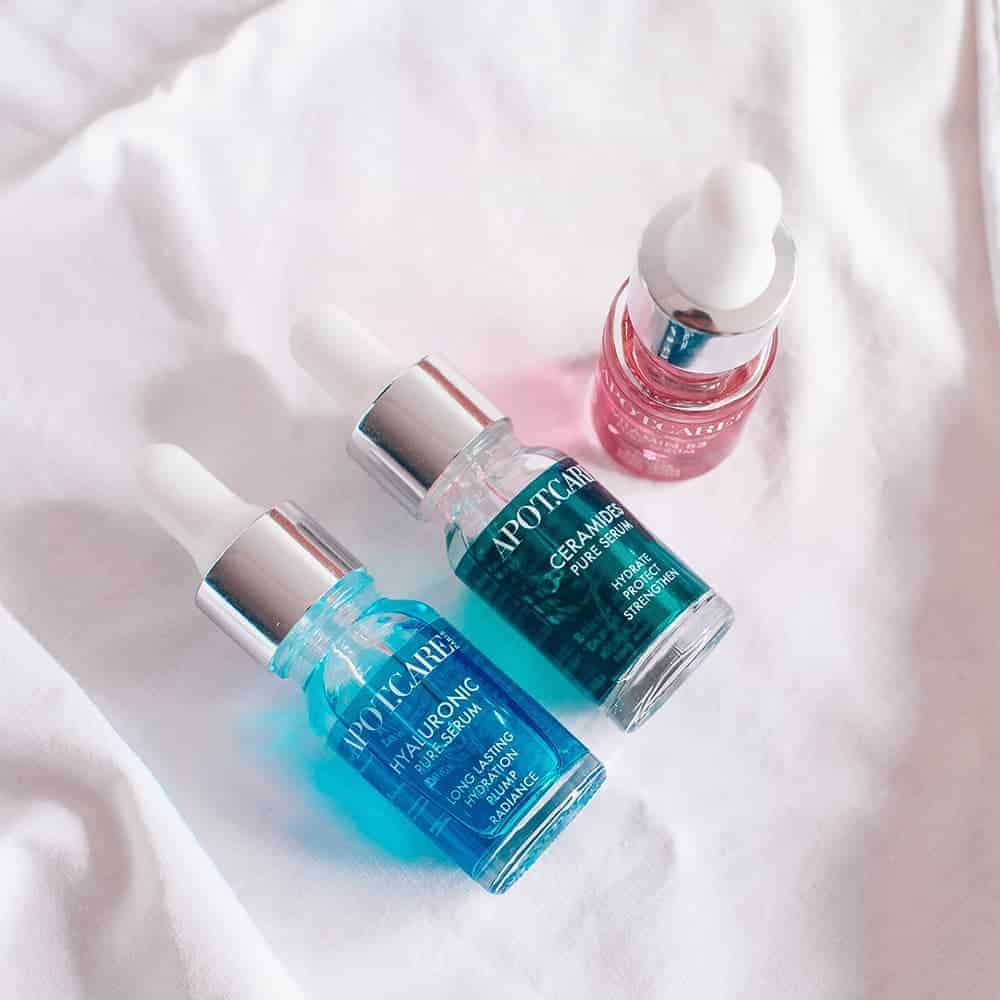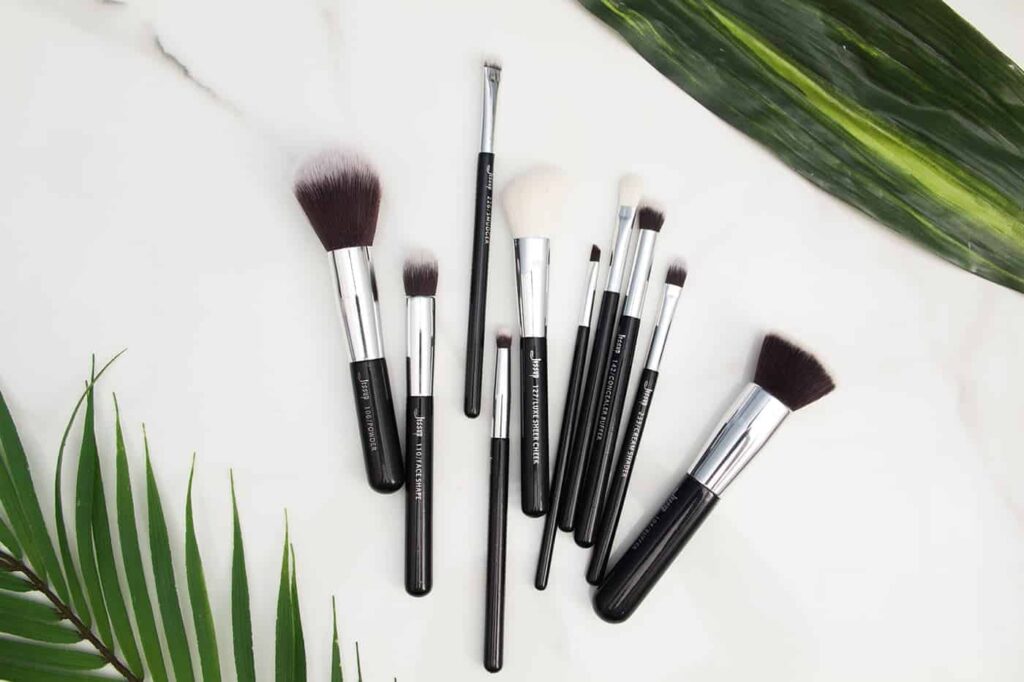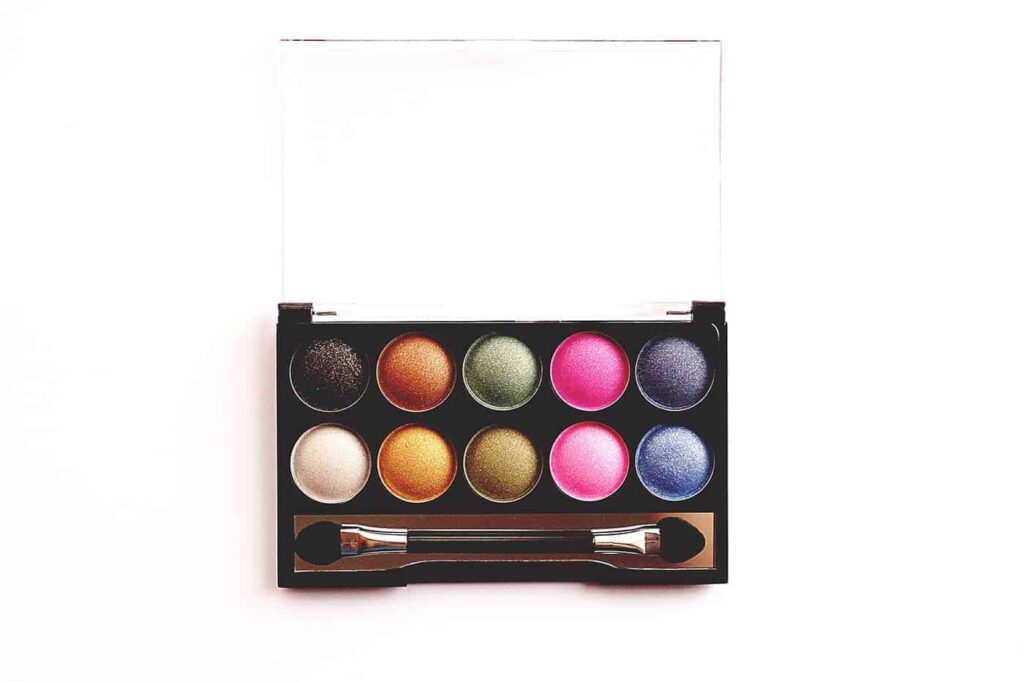How do I have a happy look?
First step for having a happy look is to determine your skin type. Our skin is the largest organ in our body and understanding your skin type is important when it comes to developing a skincare routine that works best for you. There are generally five different skin types: normal, dry, oily, combination, and sensitive
1. Normal skin:
Normal skin is neither too oily nor too dry. It has a smooth texture and small pores and generally looks healthy and radiant. People with normal skin can benefit from a simple skincare routine that involves cleansing, moisturizing and using sun protection
2. Dry skin:
Dry skin, on the other hand, lacks oil and moisture, which can make it feel tight, flaky, and rough. It may also be more prone to wrinkles and fine lines. People with dry skin should use gentle, fragrance-free products that help to hydrate and nourish the skin and avoid using harsh soaps and hot water.
3. Oily skin:
Oily skin is characterized by an overproduction of sebum, which can result in a shiny, greasy appearance, and may also lead to acne and other skin problems. People with oily skin should use lightweight, oil-free products that help to control the production of oil and avoid using heavy moisturizers or other products that can clog pores.
4. Combination skin:
Combination skin is a mix of oily and dry areas, with the T-zone (forehead, nose, and chin) being oily and the cheeks being dry. People with combination skin should use products that are suitable for both oily and dry skin, such as a gentle cleanser and a lightweight moisturizer.
5. Sensitive skin:
Sensitive skin is prone to irritation, redness, and allergies, and may react to certain ingredients in skincare products. People with sensitive skin should use mild, fragrance-free products that are hypoallergenic and free from irritants.
In summary, knowing your skin type is crucial for maintaining healthy, bright, and radiant skin. By identifying your skin type, you can choose the right products and create a skincare routine that caters to your specific needs. Stay with me to look deeply on each skin type and how to take care of them specifically.Normal Skin
The Basics of Skincare
Normal skin is a blessing that many people aspire to achieve. It’s not too oily, not too dry, and has a healthy, radiant glow. But just because you have normal skin doesn’t mean that you should neglect your skincare routine. Proper skincare is essential for maintaining healthy, youthful-looking skin.
The first step in taking care of normal skin is to cleanse it regularly. Use a gentle, non-drying cleanser to remove dirt, oil, and makeup without stripping the skin of its natural oils. Avoid using harsh, abrasive scrubs or soaps that can damage the skin’s barrier and cause irritation.
After cleansing, it’s important to moisturize your skin to keep it hydrated and healthy. Look for a lightweight, non-greasy moisturizer that contains ingredients such as hyaluronic acid or ceramides, which help to retain moisture and protect the skin from environmental damage.
In addition to cleansing and moisturizing, it’s important to protect your skin from the sun. Even if you don’t have sensitive skin, the sun’s UV rays can still damage your skin and cause premature aging. Use a broad-spectrum sunscreen with an SPF of at least 30, and reapply it every two hours if you’re spending time outdoors.
While it’s tempting to try out new skincare products and treatments, be cautious when trying new things. Stick to products that are designed for your skin type and avoid harsh chemicals or abrasive treatments that can cause damage. If you’re unsure about a product or treatment, consult with a dermatologist before trying it out.
Finally, don’t forget to nourish your skin from the inside out. Eating a healthy, balanced diet that’s rich in vitamins and antioxidants can help to keep your skin looking healthy and radiant. Make sure to drink plenty of water and avoid smoking or excessive alcohol consumption, which can damage your skin and cause premature aging.
In summary, normal skin is a gift that requires proper care and attention. By following a consistent skincare routine and taking good care of your skin both inside and out, you can maintain healthy, youthful-looking skin for years to come.
Characteristics and Care Tips
Our skin is the largest organ in the body and plays a crucial role in protecting us from external elements. It is the first line of defense against harmful UV rays, pollution, and toxins that can damage our bodies. While we often hear about dry, oily, or combination skin, there is one skin type that often goes unnoticed – normal skin.
Normal skin is characterized by a balanced sebum production, which means that the skin is neither too dry nor too oily. It has a smooth texture, small pores, and a healthy glow. People with normal skin are lucky to have skin that is low maintenance and requires minimal care. However, this does not mean that they can ignore their skin completely. Here are some tips on how to care for normal skin:
1. Cleanse: Cleansing is an important part of any skincare routine, and people with normal skin should use a gentle cleanser to remove dirt, sweat, and makeup. It is recommended to cleanse the face twice a day – in the morning and at night.
2. Exfoliate: Exfoliating helps remove dead skin cells and promotes cell turnover, which results in a brighter complexion. People with normal skin should exfoliate once or twice a week, depending on their skin’s sensitivity.
3. Moisturize: While normal skin does not require heavy moisturizers, it is important to keep the skin hydrated to maintain its natural glow. A light, water-based moisturizer is ideal for normal skin.
4. Sun protection : Regardless of skin type, sun protection is crucial to prevent skin damage and premature aging. People with normal skin should use a broad-spectrum sunscreen with at least SPF 30 when going outside.
5. Healthy lifestyle: Lastly, a healthy lifestyle can do wonders for the skin. Eating a balanced diet, staying hydrated, and getting enough sleep can help maintain the skin’s natural balance.
In conclusion, normal skin is a blessing, and taking care of it can be simple. By following a regular skincare routine and adopting a healthy lifestyle, people with normal skin can maintain their skin’s natural balance and keep it healthy and radiant.
I don’t have extra money to waste for the random products. know your skin type first and then Find out the best product to match with.
Nazanin Hashemy
Oily Skin
Causes, Effects, and How to Manage
Do you struggle with oily skin? Do you constantly deal with shiny, greasy skin that just won’t go away no matter how often you wash your face? If so, you’re not alone. Oily skin is a common skin type that affects many people, and it can be a frustrating and embarrassing problem to deal with. In this blog post, we’ll discuss the causes of oily skin, the effects it can have on your skin and overall health, and how you can manage it.
Causes of Oily Skin
Oily skin is caused by an overproduction of sebum, the natural oil that your skin produces to keep it moisturized and protected. When your skin produces too much sebum, it can clog your pores and cause acne and other skin problems. Several factors can contribute to oily skin, including genetics, hormones, diet, and skincare products.
Effects of Oily Skin
Oily skin can have several negative effects on your skin and overall health. When your skin is too oily, it can lead to clogged pores, acne, and other skin problems. It can also make your skin look shiny and greasy, which can be embarrassing and affect your self-esteem. Additionally, oily skin can contribute to the development of skin infections and other health problems if not properly managed.
Managing Oily Skin
While oily skin can be a challenging skin type to manage, there are several things you can do to help control it. Here are some tips:
1. Use the right skin care products: Choose skincare products that are designed for oily skin, such as oil-free cleansers and moisturizers. Look for products that contain salicylic acid or benzoyl peroxide, which can help unclog pores and prevent acne.
2. Wash your face regularly: Wash your face twice a day with a gentle cleanser to remove excess oil and dirt. Avoid using hot water, as it can strip your skin of its natural oils and cause it to produce even more oil.
3. Avoid touching your face: Touching your face can transfer oils and dirt from your hands to your face, which can worsen oily skin and cause breakouts.
4. Eat a healthy diet: A diet that is high in processed foods, sugar, and unhealthy fats can contribute to oily skin. Instead, eat a diet that is rich in fruits, vegetables, lean proteins, and healthy fats to help keep your skin healthy and balanced.
5. Manage stress: Stress can contribute to oily skin, so it’s important to find ways to manage it. Try practicing relaxation techniques like deep breathing, meditation, or yoga.
6. Use blotting papers: Keep blotting papers or tissues on hand to help absorb excess oil throughout the day. Gently blot your skin with paper or tissue to remove any excess oil without removing your makeup.
7. Choose the right makeup: Choose makeup products that are labeled as “oil-free” or “non-comedogenic,” as they are less likely to clog your pores and contribute to oily skin. Avoid heavy, oil-based products, which can make your skin look even oilier.
8. Don’t over-wash your face: While it’s important to wash your face regularly, over-washing can actually make your skin produce even more oil. Stick to washing your face twice a day, and avoid using harsh scrubs or exfoliants, which can irritate your skin and worsen oily skin.
9. Consider seeing a dermatologist: If you’re struggling with severely oily skin or acne, it may be time to see a dermatologist. They can prescribe medications or recommend treatments that can help control your oily skin and prevent future breakouts.
In conclusion, oily skin can be a frustrating problem to deal with, but it is manageable with the right skincare routine and lifestyle changes. By following the tips outlined in this blog post, you can help control your oily skin and keep your skin looking healthy and radiant. Remember to be patient, as it may take some time to find the right products and routine that works best for your skin.
Dry Skin
Causes, Effects, and How to Manage
Do you struggle with dry skin? Do you constantly deal with tight, flaky skin that just won’t seem to stay moisturized no matter what you do? If so, you’re not alone. Dry skin is a common skin type that affects many people, and it can be a frustrating and uncomfortable problem to deal with. In this blog post, we’ll discuss the causes of dry skin, the effects it can have on your skin and overall health, and how you can manage it.
Causes of Dry Skin
Dry skin is caused by a lack of moisture in the skin. There are several factors that can contribute to dry skin, including genetics, weather, age, and skincare products. Cold, dry weather can make dry skin worse, as can hot showers or baths, which can strip the skin of its natural oils. Certain medications and medical conditions can also contribute to dry skin.
Effects of Dry Skin
Dry skin can have several negative effects on your skin and overall health. When your skin is too dry, it can become flaky, itchy, and uncomfortable. It can also make your skin look dull and aged, and it can contribute to the development of fine lines and wrinkles. Additionally, dry skin can lead to skin infections and other health problems if not properly managed.
Managing Dry Skin
1. Use a gentle, moisturizing cleanser: Choose a cleanser that is designed for dry skin and that won’t strip your skin of its natural oils. Look for products that are labeled as “hydrating” or “moisturizing.”
2. Moisturize regularly: Apply a moisturizer to your skin after washing your face or taking a shower. Look for a moisturizer that is designed for dry skin and that contains idents like hyaluronic acid or ceramides, which can help hydrate and repair your skin.
3. Avoid hot showers or baths: Hot water can strip your skin of its natural oils, so it’s important to avoid hot showers or baths if you have dry skin. Stick to warm water instead, and try to limit your time in the shower or bath to no more than 10 minutes.
4. Use a humidifier: Dry air can make dry skin worse, especially during the winter months. Consider using a humidifier in your home to add moisture to the air and help keep your skin hydrated.
5. Drink plenty of water: Staying hydrated is important for healthy skin, so be sure to drink plenty of water throughout the day. Aim for at least eight glasses of water per day.
6. Avoid harsh skincare products: Avoid using skincare products that contain alcohol, fragrances, or other harsh ingredients that can irritate your skin and make dry skin worse.
7. Wear sunscreen: Even if you have dry skin, it’s important to wear sunscreen to protect your skin from the sun’s harmful rays. Look for a sunscreen that is labeled as “oil-free” or “non-comedogenic.”
In conclusion, dry skin can be a frustrating and uncomfortable problem to deal with, but it is manageable with the right skincare routine and lifestyle changes. By following the tips outlined in this blog post, you can help hydrate and nourish your skin and keep it looking healthy and radiant. Remember to be patient, as it may take some time to find the right products and routine that works best for your skin.
Combination Skin
Understanding It and How to Care for It
Combination skin is a common skin type that can be challenging to care for. It is characterized by an oily T-zone (forehead, nose, and chin) and dry or normal skin on the cheeks and other areas of the face. In this blog post, we’ll discuss what causes combination skin and how you can care for it.
Causes of Combination Skin
Combination skin is caused by a combination of genetic, environmental, and lifestyle factors. One of the primary causes is an overproduction of sebum, the oil that is naturally produced by your skin. When your skin produces too much sebum, it can clog your pores and lead to acne breakouts. At the same time, other areas of your face may not produce enough oil, leading to dryness and flakiness.
Environmental factors can also contribute to combination skin. For example, exposure to hot or cold weather can affect the production of sebum in your skin. Hormonal changes, such as those that occur during puberty or pregnancy, can also contribute to changes in your skin type.
Caring for Combination Skin
Caring for combination skin requires a delicate balance of hydration and oil control. Here are some tips for caring for combination skin:
1. Use a gentle cleanser: Use a gentle cleanser that won’t strip your skin of its natural oils. Look for a cleanser that is labeled as “non-comedogenic” or “oil-free” to avoid clogging your pores.
2. Moisturize regularly: Moisturize your skin regularly to help hydrate dry areas and balance oily areas. Look for a moisturizer that is lightweight and won’t clog your pores.
3. Use a toner: Use a toner after cleansing to help balance your skin’s pH levels and remove any excess oil.
4. Exfoliate regularly: Exfoliate your skin once or twice a week to help remove dead skin cells and unclog your pores. Look for a gentle exfoliator that won’t irritate your skin.
5. Spot treat breakouts: If you have acne breakouts on your T-zone, use a spot treatment that contains salicylic acid or benzoyl peroxide to help control oil production and reduce inflammation.
6. Use sunscreen: Protect your skin from the sun’s harmful rays by using a broad-spectrum sunscreen with at least SPF 30. Look for a sunscreen that is labeled as “oil-free” or “non-comedogenic” to avoid clogging your pores.
7. Avoid harsh products: Avoid using skincare products that contain alcohol, fragrances, or other harsh ingredients that can irritate your skin and make combination skin worse.
In conclusion, combination skin can be a challenging skin type to care for, but it is manageable with the right skincare routine and lifestyle changes. By following the tips outlined in this blog post, you can help balance your skin’s hydration and oil levels and keep your skin looking healthy and radiant. Remember to be patient, as it may take some time to find the right products and routine that works best for your skin.
Sensitive Skin
Understanding It and How to Care for It
Sensitive skin is a common skin type that can be easily irritated by various factors, such as harsh skincare products, environmental pollutants, and stress. If you have sensitive skin, it is important to understand what causes it and how to care for it properly to avoid irritation and discomfort.
Causes of Sensitive Skin
Sensitive skin is caused by a combination of genetic and environmental factors. Genetics can play a role in how sensitive your skin is, as some people are more prone to skin sensitivity than others. Environmental factors, such as exposure to irritants or allergens, can also contribute to sensitive skin.
Common triggers for sensitive skin include:
• Harsh skincare products, such as those containing fragrances, alcohol, or sulfates.
• Exposure to environmental pollutants, such as air pollution or UV rays.
• Weather changes, such as cold, dry air or hot, humid weather.
• Stress and lack of sleep.
Caring for Sensitive Skin
Caring for sensitive skin requires a gentle approach that avoids harsh ingredients and irritants. Here are some tips for caring for sensitive skin:
1. Use a gentle cleanser: Use a gentle, fragrance-free cleanser that won’t strip your skin of its natural oils. Look for a cleanser that is labeled as “non-comedogenic” or “hypoallergenic” to avoid irritating your skin.
2. Moisturize regularly: Moisturize your skin regularly to help hydrate and protect your skin. Look for a moisturizer that is free of fragrances and other irritants, and that is labeled as “non-comedogenic” or “hypoallergenic”.
3. Use a toner: Use a toner after cleansing to help balance your skin’s pH levels and remove any excess dirt and oil. Look for a toner that is free of alcohol and other irritants.
4. Avoid exfoliation: Avoid using harsh scrubs or exfoliators that can irritate your skin. Instead, use a gentle chemical exfoliant, such as a product containing alpha-hydroxy acids (AHAs) or beta-hydroxy acids (BHAs).
5. Protect your skin: Protect your skin from environmental pollutants and UV rays by using a broad-spectrum sunscreen with at least SPF 30. Look for a sunscreen that is free of fragrances and other irritants.
6. Avoid harsh products: Avoid using skincare products that contain fragrances, alcohol, or other harsh ingredients that can irritate your skin. Stick to products that are labeled as “non-comedogenic” or “hypoallergenic”.
7. Be gentle: Be gentle with your skin when cleansing and applying products. Avoid rubbing or scrubbing your skin, and pat it dry gently with a soft towel after washing.
In conclusion, sensitive skin requires a gentle approach that avoids harsh ingredients and irritants. By following the tips outlined in this blog post, you can help reduce irritation and discomfort and keep your skin looking healthy and radiant. Remember to be patient, as it may take some time to find the right products and routine that works best for your skin.



Lorem ipsum dolor sit amet, consectetur adipiscing elit, sed do eiusmod tempor incididunt ut labore et dolore magna aliqua. Ut enim ad minim veniam, quis nostrud exercitation ullamco laboris nisi ut aliquip ex ea commodo consequat. Duis aute irure dolor in reprehenderit in voluptate velit esse cillum dolore eu fugiat nulla pariatur. Excepteur sint occaecat cupidatat non proident, sunt in culpa qui officia deserunt mollit anim id est laborum.




